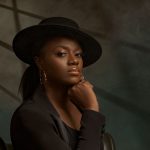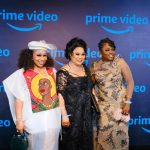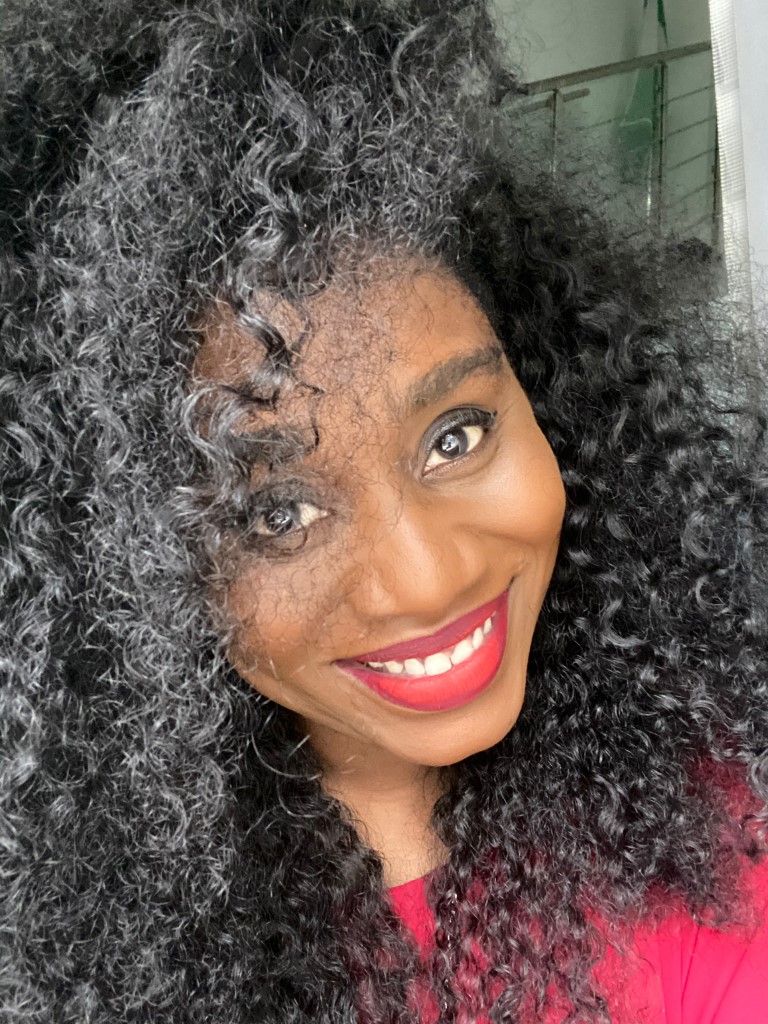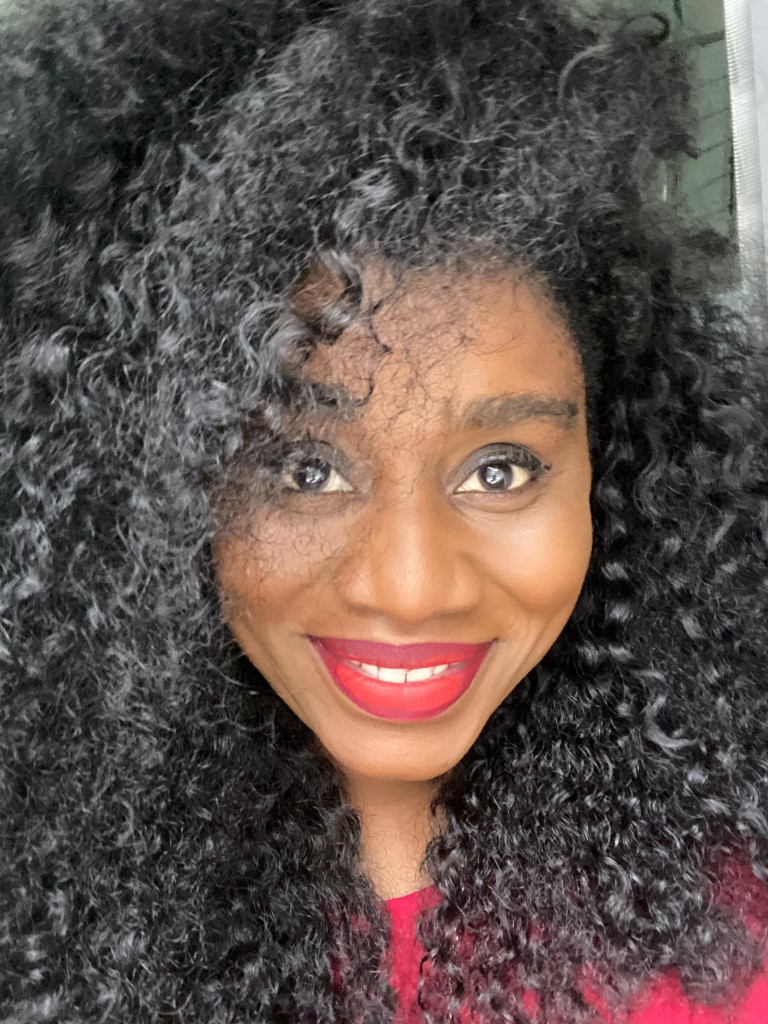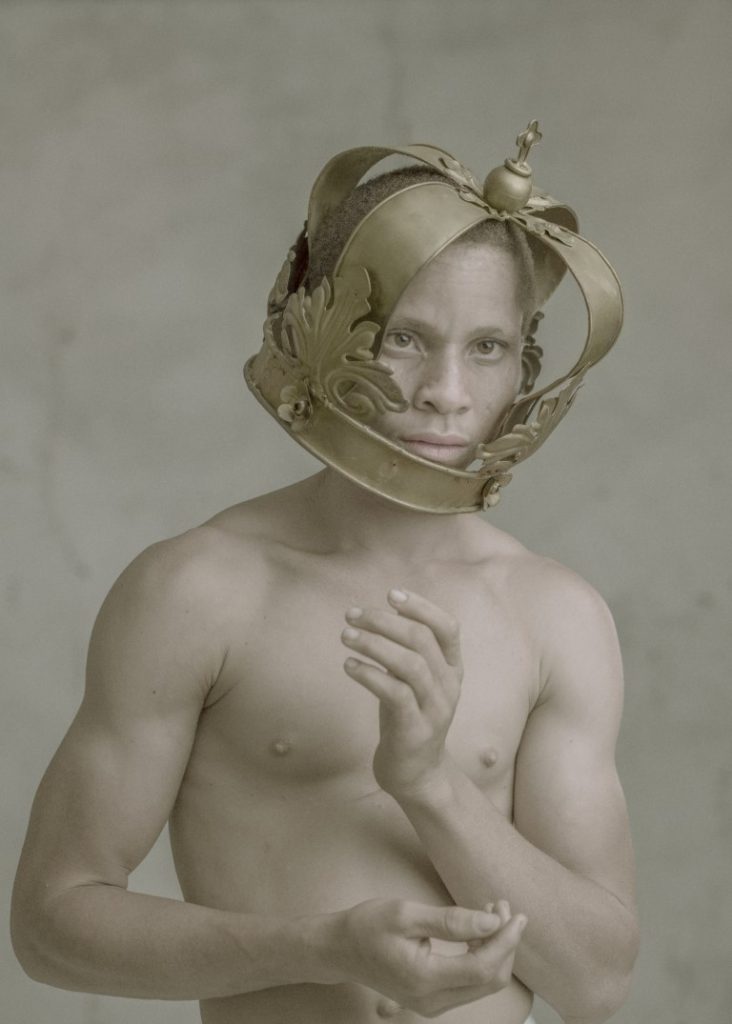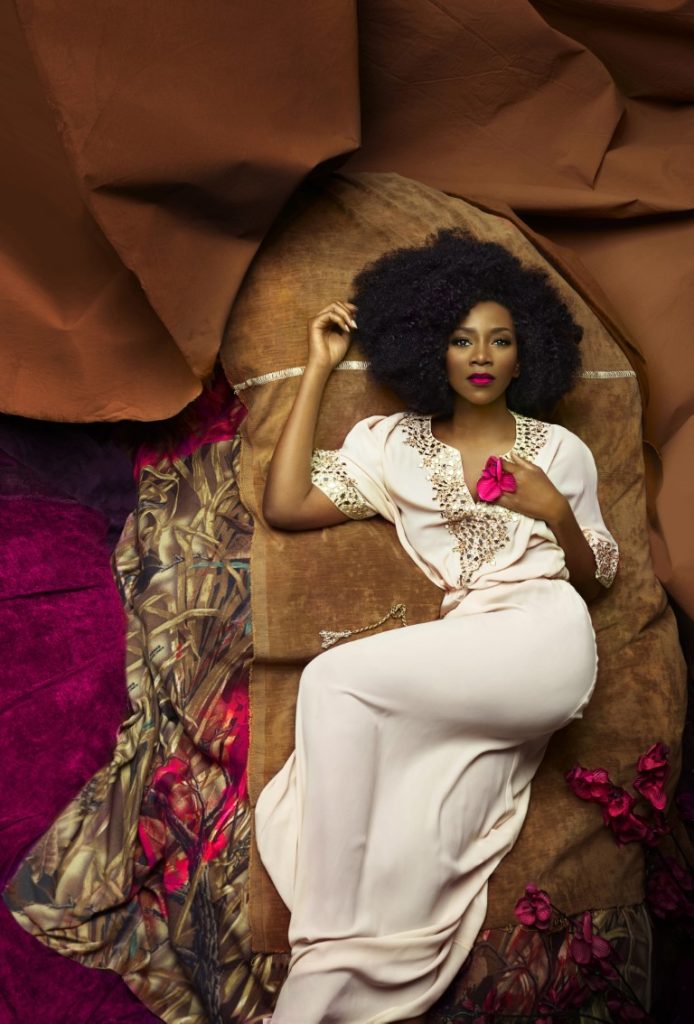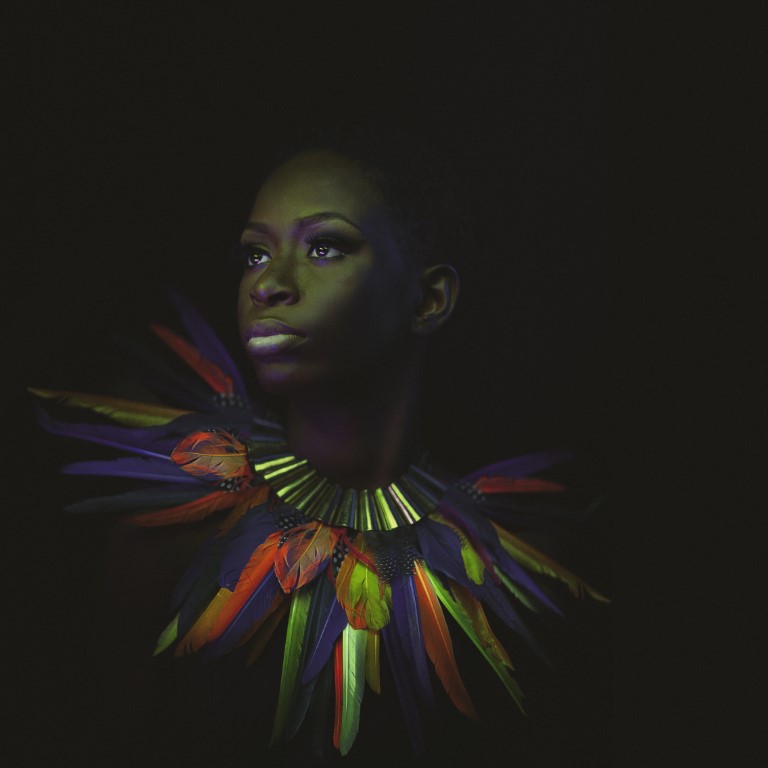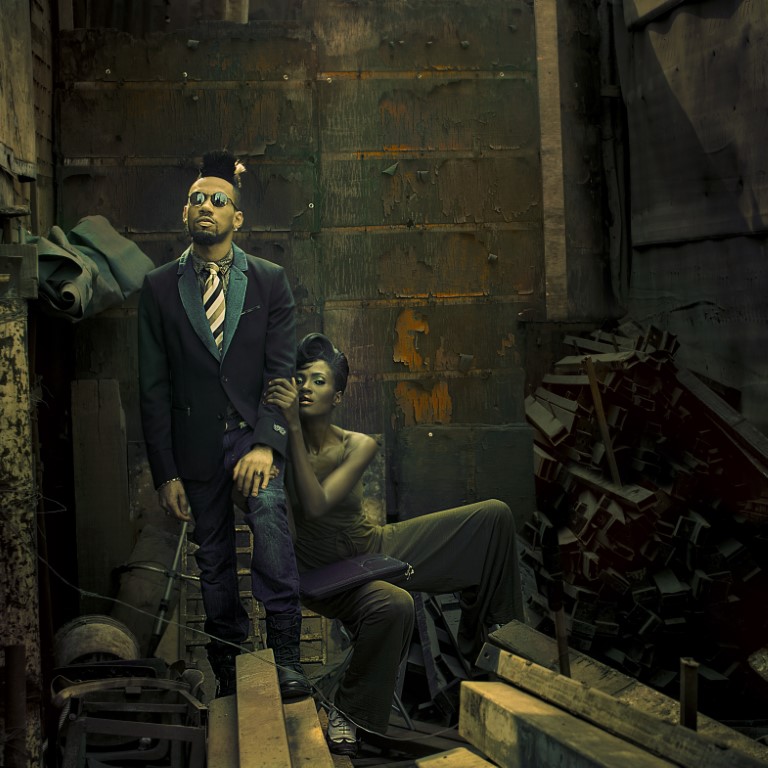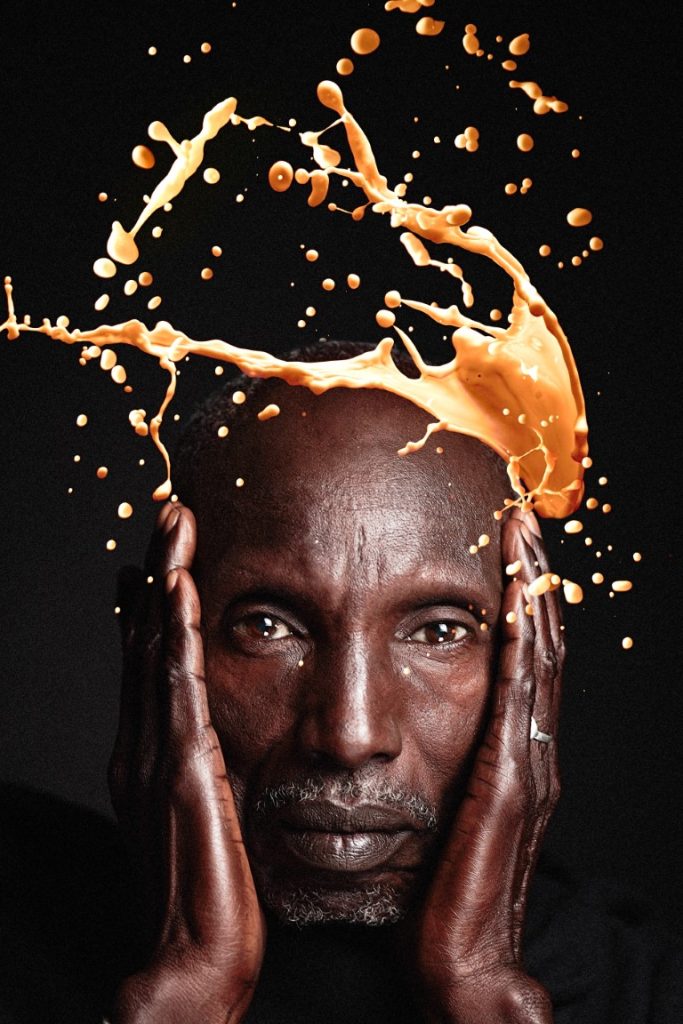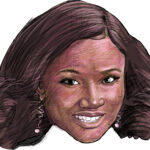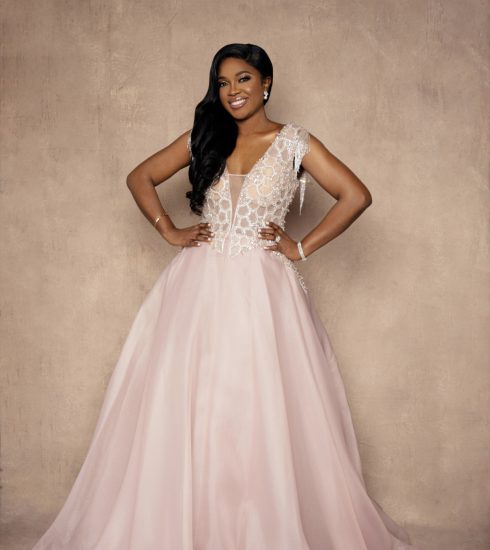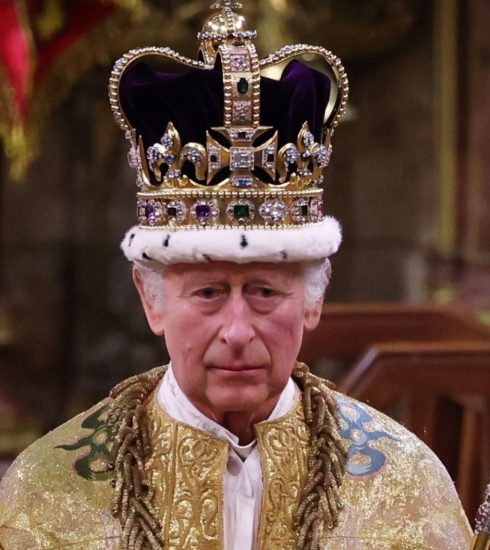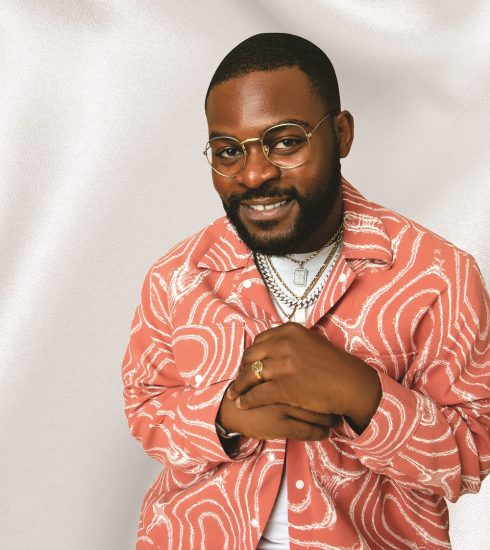It’s TY Bello! For The Love Of Music And Photography
Several art forms have been employed to tell stories over the years, but one that genuinely elevated media and immortalized special moment is photography. Although written words have done a great job of narrating and documenting culture, traditions and even memories, a picture provides a visual presentation that immortalises whatever the subject is—there is a reason why its worth is in a thousand words.
Like music, photography stems from the heart; we could say he composition of both art forms is similar and one person who juxtaposes both worlds seamlessly is Toyin Sokefun-Bello, widely known as TY Bello.
For most established photographers, their signature finishing is embedded in their work; one look at an image, and you immediately know who was behind the lens. But it takes years of finding yourself with each picture you capture before your heart and soul finally come in perfect harmony with a particular finishing style.
The same is true for TY Bello, whose work usually garners comments on how she captures the true essence of her subject. It comes from the heart. She is a spiritual romantic who loves her work and extends that love to the people she photographs, such that you look at the portrait and feel like you know them.
So it was no surprise when her response to being our cover personality was, “I have to check with my spirit to see….” Needless to say, we were equally yoked.
To celebrate World Photography Day, she speaks to DOWNTOWN’s Editor, Onah Nwachukwu, about her creative dexterity that has seen her alternate between the pen and lens effortlessly and how she uses them as a tool to spread love and humanity.

You studied Economics, yet started as a hairdresser and a makeup artist. How did you transition into the creative space?
As far back as I remember, I have always been a creative. Every creative endeavour was that one thing I would excel in. I used to paint as a child, represent my school in competitions and win all the prizes. That was one place I excelled; I never knew art as a career option. Growing up, you either had to be a lawyer, doctor or an accountant. I tried to figure out how to make it work, and I decided the only way to do it was to actually please my parents, study what I knew was acceptable and then jump right in and do the things I wanted to do—photography, song writing and being a beautician. They all tied up into the same thing—it is you creating something out of nothing, and I have been able to go back and forth between them.
Why did you decide photography over art, seeing as you were painting in school? How did you narrow it down to photography?
I had a very good teacher who was a mentor. He left my school when I was 13, and I dropped painting altogether. I was always curious about creating again and figured photography was a way to go back into painting without having to physically paint again. Although last year I picked up a brush and paint and started painting again. Photography, for me, was a way to go back and create visually without having to pick up from where I left off when I was much younger.
People say the finishing or treating of a photograph is like painting. For you, who is a photographer in terms of its similarities with art?
A photographer is someone who paints with light, with your camera as your brush. I think that what a photographer sees more than anything else is light. You do not see an object; you are focused on the way the light is falling on that object. Not that a graphic artist or a painter doesn’t see light at all, it’s just that photography as an art form has always been about light, the way it behaves, and how it can be captured and manipulated. That is what photography is. It’s the art of painting with light, and it’s incredible. That’s what we really do.
How important is it to have an eye for imaging in photography?
It’s a lifetime of growing. As human beings, we learn to speak, read, and even walk, but we never really felt the need to learn to see. Photography is that art form that teaches you how to see, and so over your lifetime, you are more aware of what you are looking at, either artistically, emotionally, or even from a perspective of social justice; you are constantly seeing and looking. I guess that’s what you learn as you go along over the years.
Is photography more of a skill that can be learnt, or is it innate and a gift?
I believe it is all of the above. I believe that there is no skill that cannot be learnt, and I believe that everybody has some innate gift which, when paired with something that you have learnt or perfected, would create work that is unique. Everybody learns something, but it is when you combine that (what you learn) with the innate gifts or sensibilities you have that give you a voice in the art form. Everybody is an artist one way or another, but it is about what they’ve taken time out to learn and combined with what they have already.
You create some of the most breathtaking portraits. What helps you decide what you want with each subject? Would you say that understanding imaging and lighting enables your creative process?
When it comes to making photographs of people, the biggest part of people is not necessarily always their physical appearance; it is who they are. Emotionally and spiritually. The most important part of my work is not necessarily how I want them to be projected physically. Yes, I put all of that at the foundation, but it’s me looking for ways to bring out the essence and the spiritual part of who they are and have them wear that on their outer expression. I believe that’s the strength of a portrait photographer. It’s finding out exactly the nuances of that human being and what they are really made up of on the inside, figuring out how to make images that will make people who know them go, “aha! that is so them.” Or people who don’t know them at all suddenly feel like they know them much more, just because they come across those images of them.
They say music is usually from the soul, and you once commented that photography and music are similar art forms. How can you explain that in relation to bringing out the spriritual part of the people you photograph?
It’s interesting that you bring out the similarities between music and photography. When you put a photo together, before you click to capture an image, it is called a composition. When you write a song, you compose a song. So it’s the same way you compose a photo that you compose a song. Putting elements together and arranging them in a way that makes sense to you or in a way you want to communicate an idea. I feel like, in that way, there are many similarities between making an image and making a song, and I guess that’s why I’ve been able to live out and have the two careers side by side for the last two decades of my life. It’s because you are constantly composing; you are putting things together that normally wouldn’t even belong together and finding a way to make them work.
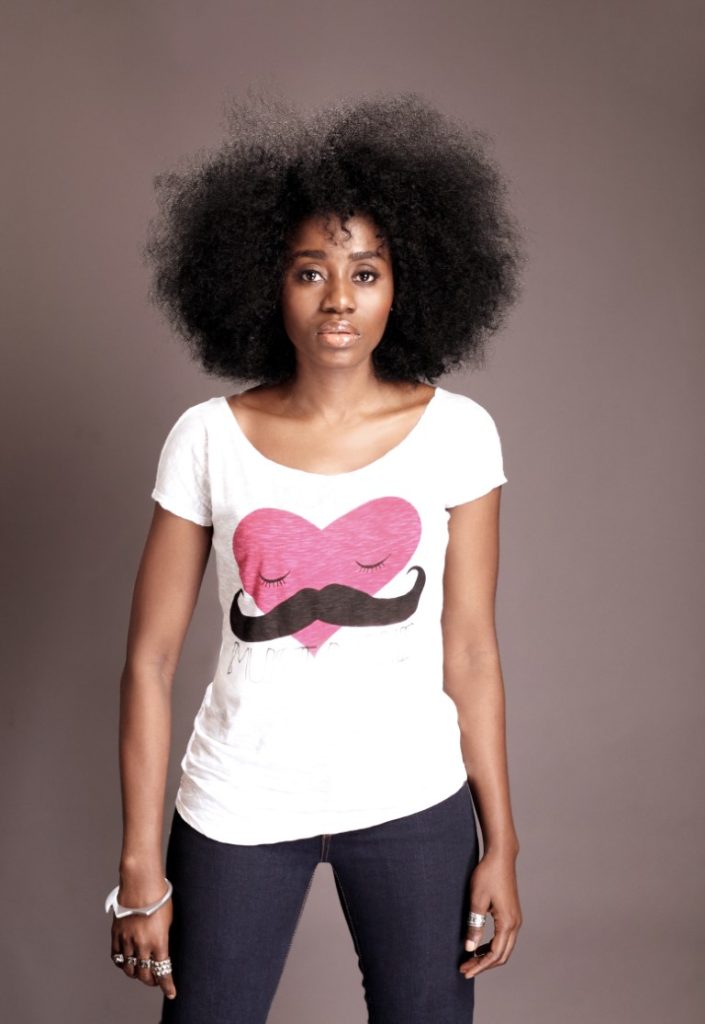
How did you come about writing music?
Oh, it’s interesting. Outside of painting, one of the things that I started doing very early in my life was songwriting. I was that melancholic child that would sit in the corner and piece words together with sound. Though I was generally very shy as a child, I remember every single time that I was on stage or given the microphone, it was like something would come over me, and I wouldn’t feel any kind of fear or insecurity. I would just feel like I owned it, and I would be spontaneous and own the stage. It’s something that I believe I was born with. I believe that writing music is a gift and a craft, so of course, over the years, you would improve and hone it, but I believe it’s a gift that I’ve had since I was a child.
Would you say that it is an aspect of your creative gift that you are more in tune with and allows you to bring out more passion than photography, or is it a continuation from where you stop in your photography work, so to speak?
It’s interesting, people have been asking me if I prefer music to photography, and it is very hard to say because they are two very different things. It’s like music is where I hide. If I need to uplift myself, I sing or create a song. If I want to explore the world, I would go out and make images. They are very different, but I feel like having more than one way to express yourself only enriches your life and your human experience. Music is one good way to connect with what I’m really feeling on the inside, how I let people experience what is going on inside of me; whereas photography is how I connect with what’s going on outside of me; what’s going on on the inside of somebody else, and I want to experience that.
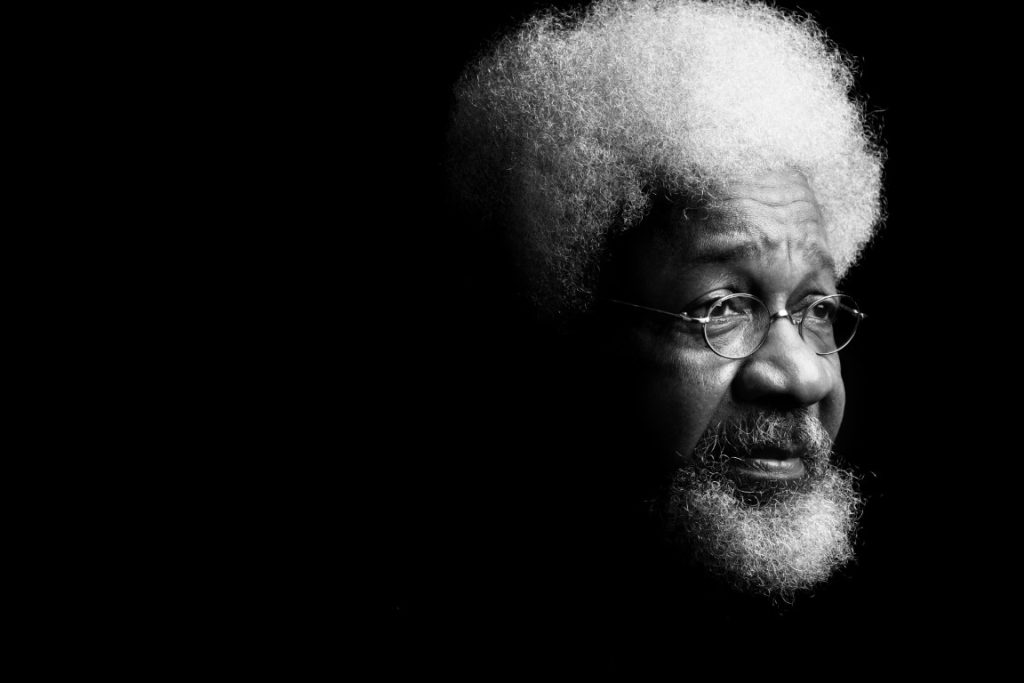
With music, are you looking at releasing any new single soon?
I released an album earlier this year, and I am in the middle of two new projects. It’s been a very busy year for me musically, actually. I’m looking forward to releasing new material at the end of the year and the beginning of next year.
You started doing something unique, and it’s gone on for years: worshipping in your studio. What influenced that?
It must have been God. I know that for a long time, I have always been curious about the whole idea of singing a new song, and how when I read the Bible, David would talk about singing a new song— he said it so many times. It was because every human being was capable of singing something they’d never sung before. Then I started these sessions called Spontaneous Worship, where we came together and pretty much sang songs that didn’t exist prior to us getting the microphone. It’s been the most exhilarating musical experience of my life because every single time, it is new, and nobody knows what we will sing. Neither the musicians nor singers do, but we get behind the microphone, and these songs come together that are crafted so perfectly like we rehearsed over and again. It’s been a journey of worship, speaking into the atmosphere, speaking your prayers, singing your prayers, collaborating with other artists—people you’ve never met before—and singing with them like you’ve known them all your life. Let’s talk about the business of photography. You are one of the first few famous female photographers. Although nowadays, younger girls have followed suit, looking up to you. How difficult was it for you, at the start, to carve a name for yourself in a primarily male-dominated industry?
It’s interesting. I don’t think my being a woman was ever a disadvantage because I was surrounded by male colleagues, and we pushed each other just as hard. Nobody had mercy on me because I was a woman. I think that helped because we were equals in our profession. I remember when Kelechi Amadi-Obi, Uche Okpa-Iroha, Amaize Ojeikere, and I started Depth of Field, it wasn’t a collective of three male photographers and a female photographer; it was four young Nigerians sharing their narratives of living in Lagos as an urban space with the rest of the world. I think that our “Nigerian-ness” was a bigger defining part of our narrative than my gender. I guess the beautiful thing about being a female photographer for me was the opportunity to explore what it meant to be a young woman at this time. And I did a few projects to explore that artistically. I didn’t make the fact that I am a woman the most important part of what defined me as a creative. I’m excited to be a woman, but I put it forward that I was a creative first and pushed just as hard as everybody else.
This year’s World Photography Day theme is ‘Pandemic lockdown through the lens.’ How did the pandemic affect photography in Nigeria?
Initially, we didn’t know how to navigate because of the uncertainty and the sudden changes that happened with the pandemic. What I found as a gift in this “lockdown” was that it helped us realise that we were bonafide members of a very big global community of artists. It suddenly didn’t matter what country you were from. Nigerian photographers, more than ever before, began participating and engaging on platforms and ideas that are truly global. I love the way that Nigerian photographers are playing in the NFT space, for instance. We now realise that borders have blurred out and that we were in a much bigger global scenario, and I think that has been empowering for most people.
Would you say that social media helped with visibility and creating more to put out there since we couldn’t even go out at the time?
Yes, absolutely. I remember when I became a photographer in the early 2000s, you needed somebody to love your work enough to want to show it so a very specific group of people could see it and when the exhibition was over, the seeing was over. Today, with social media and the platforms available to us as photographers, you don’t need permission from anyone to show your work; you can put up your work for as long as necessary. I would say that it’s been a very beautiful time for people to show their talents not only to a Nigerian audience but also to a global audience, and it’s beautiful to see the stories that have come out of that.
What will happen in the long run with NFTs and Photography in the next couple of years for Nigerians and Africans in this digital era?
I remember in the early 2000s, when digital cameras started to show up more, some people were afraid that it was just a facade that would go away, and they weren’t willing to invest and turn their direction in that new flow of technology developing in that direction. And I remember that those who ignored the change did it to their own peril because things started to change really quickly, and analogue cameras became obsolete very quickly. I see that same type of digital revolution going on with the images that are being shared, traded, viewed and owned. It’s important to realise that a new language is being formed, a new economy has been formed, and it’s here to stay. It’s not going to go away If anything, it’s going to evolve really quickly. So, this is the time for creative people (anyone who is a creative) to understand that the digital sphere is almost as real as the physical space, and the quicker we find our feet there, the better it is for every creative.
It’s looking like this is the future of photographers and any creative, and I suppose it could pass as a form of insurance for their work. However, photographers in Nigeria are not typically known to insure their equipment. How important would you say it is for a photographer to insure their equipment?
I believe that insurance is important, especially if you’ve invested a lot in getting your equipment. I believe that extra bit of ensuring it is secure is very important because you don’t know how valuable your equipment is until you lose it. I think just taking that extra bit of inconvenience and ensuring you secure your equipment is worth it. I also think that in insuring your equipment, it is important to secure the future as a creative.
And how does a photographer secure their future?
You secure the future by opening yourself to knowledge and understanding the rules of the game. I know a lot of young photographers who are very talented and creative but don’t understand the power of their own copyright, what it means when they share images, and what it means when somebody is licensing their work. More than ever before, one of the ways that we secure our future as photographers is by empowering ourselves with knowledge and understanding of how the world works, how imaging works, and the importance of copyright. That is where the power is.
How do they get educated on the need to copyright their work?
Copyright can be very complicated, but I believe that Nigeria is one of the countries that has the most beautiful copyright laws in the world. In Nigeria, the artist or creator is king, and I believe that one of the ways for creatives to empower themselves is to constantly collaborate with their colleagues in other professions. So as a photographer, you should have lawyer friends and, by all means, have lawyers. You should have people who work with you, from accountants, lawyers, good advisers, coaches, and so on. The season of being a lone creator who just works by themselves should be over because we know that we work better when we work together. What I love about the younger generation of creatives is that they work and collaborate. Every photographer has a friend that’s a lawyer who’s giving them advice on how to navigate certain scenarios. I always tell my young photographers, ‘find out what’s out there, what works in your country and what the rules are so that at every point in time, you know how to engage to ensure you are playing for the long haul.’ However, I always say outside of doing it formally, surround yourself with people from different fields and spheres so that you have the necessary knowledge when you need to make decisions. Don’t leave any knowledge gaps.
In terms of policies with the Nigerian government, are there any policies that affect the photography business in Nigeria, and what sort of solution would you proffer?
It’s interesting to say, as musicians, we know how terrible piracy is. In photography, it is also a problem. A photographer friend of mine told me how she was driving on the road one day, saw her work on a billboard and was excited. She didn’t know that it wasn’t okay to have somebody else take her work, reproduce it and exploit it by putting it up on a billboard without her permission and proper licensing. I think the most important thing is to educate; educating the users and creatives to understand how a creative endeavour is one of the most beautiful endeavours in life as every time you create something, it never dies. It is yours until you give it away. To educate them on the different ways to give it away, let them know their options so they can, like I said earlier, navigate this career for the long haul.
You have carved your trademark look in navigating the career for the long haul. People look at your photographs and can immediately tell it is your work. How did you know the kind of finish you wanted with your pictures for people to be able to look at them and say, “this is a TY Bello photo”?
I think that people being able to recognise my photos is something that has happened after decades of working and trying to figure out how I see a person. I’m very romantic, and I love the spiritual, the emotionally inspiring and uplifting. I’m constantly trying to put the language of the things that matter to me spiritually in my work. So you will see me put the ethereal, heavenly and the spiritual. I’m also very inspired by the old Italian painters and how they would bring spiritual themes into their paintings, and in many ways, I try to bring that into my work. I’m constantly looking for how to create work that people look at and feel uplifted, not only the subject, who should, of course, feel very excited about who they are and how they look, but also for other people looking at the images. I believe that it is something that has taken time but happened very indeliberately, and I’m very glad that it has eventually come together that way.
Let’s talk about the recognition of Nigerian photographers by international brands. What do you think influenced and how has it helped the photographers regarding global respect and partnerships?
I remember when I started in photography, and the guys and I would travel abroad and see the international brands, and it was almost as if they were unaware that we existed as creatives. When work was made, and Africa was brought up in photography, it was more of Africa as a subject, but never Africa as a thriving market for their brands. It’s beautiful to see that with the army of young photographers that exist in Nigeria, a lot of the top photography brands are very well represented here, and it’s beautiful because it means that the rest of the world is paying attention and that our creativity is thriving across the globe.
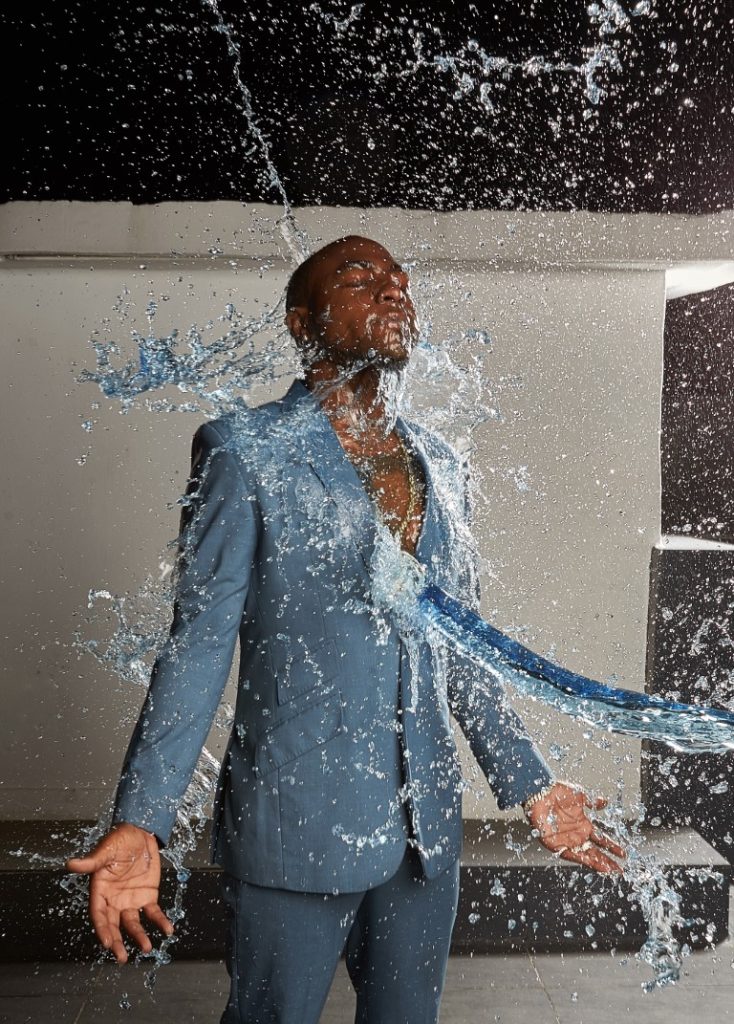
What would you say helped draw their attention to Nigerians and Africans?
Apart from the fact that the Nigerian spirit always stands out, we go into the photography space and don’t leave it the way it was. We learned technically all that is there and then put our own twist on everything, plus we are a very big number of creatives. It’s incredible the number of young Nigerian photographers that exist right now compared to just 10 years ago. It means that a growing number of young people are awake to their own creativity, and with social media and other platforms for expression, it is very exciting to see the rest of the world notice and want to be part of it.
What secret about photography would you like to share with young photographers?
The one secret—and I don’t think it’s a secret that I have—is to always keep enamoured and excited about the human spirit more than you do about technique and technology. Technique can become obsolete, and technology will change, but the subject in front of you—and not just for us who photograph human beings, even for those who photograph nature or whatever it is— the life in front of you will always transcend and outlive technique and technology. That, I would say, is what has kept me going. Of course, I’m a great student of photography and will continue to be, but I’m a bigger student of human beings.
What is an essential tool that every photographer needs to be able to successfully run a photography business?
The most important tool, of course, outside of your camera, would be love. No one who knows that you love your profession and that you actually love them will ever forget you. When you photograph from a place of love, you are not taking a photograph; you are making an image and giving it. Even as the Bible says, ‘it is more blessed to give than to receive,’ I believe that love is the most important tool and indeed the most important foundation, not only for the photography business but any endeavour whatsoever. Love never fails.
A lawyer by training, Onah packs over a decade of experience in both editorial and managerial capacities.
Nwachukwu began her career at THISDAY Style before her appointment as Editor of HELLO! NIGERIA, the sole African franchise of the international magazine, HELLO!
Thereafter, she served as Group Editor-in-Chief at TrueTales Publications, publishers of Complete Fashion, HINTS, HELLO! NIGERIA and Beauty Box.
Onah has interviewed among others, Forbes’ richest black woman in the world, Folorunso Alakija, seven-time grand slam tennis champion, Roger Federer, singer Miley Cyrus, Ex Governor of Akwa Ibom State, Godswill Akpabio while coordinating interviews with Nigerian football legend, Jayjay Okocha, and many more.
In the past, she organised a few publicity projects for the Italian Consulate, Lagos, Nigeria under one time Consul General, Stefano De Leo. Some other brands under her portfolio during her time as a Publicity Consultant include international brands in Nigeria such as Grey Goose, Martini, Escudo Rojo, Chivas, Martell Absolut Elix, and Absolut Vodka.
Onah currently works as the Editor of TheWill DOWNTOWN.


